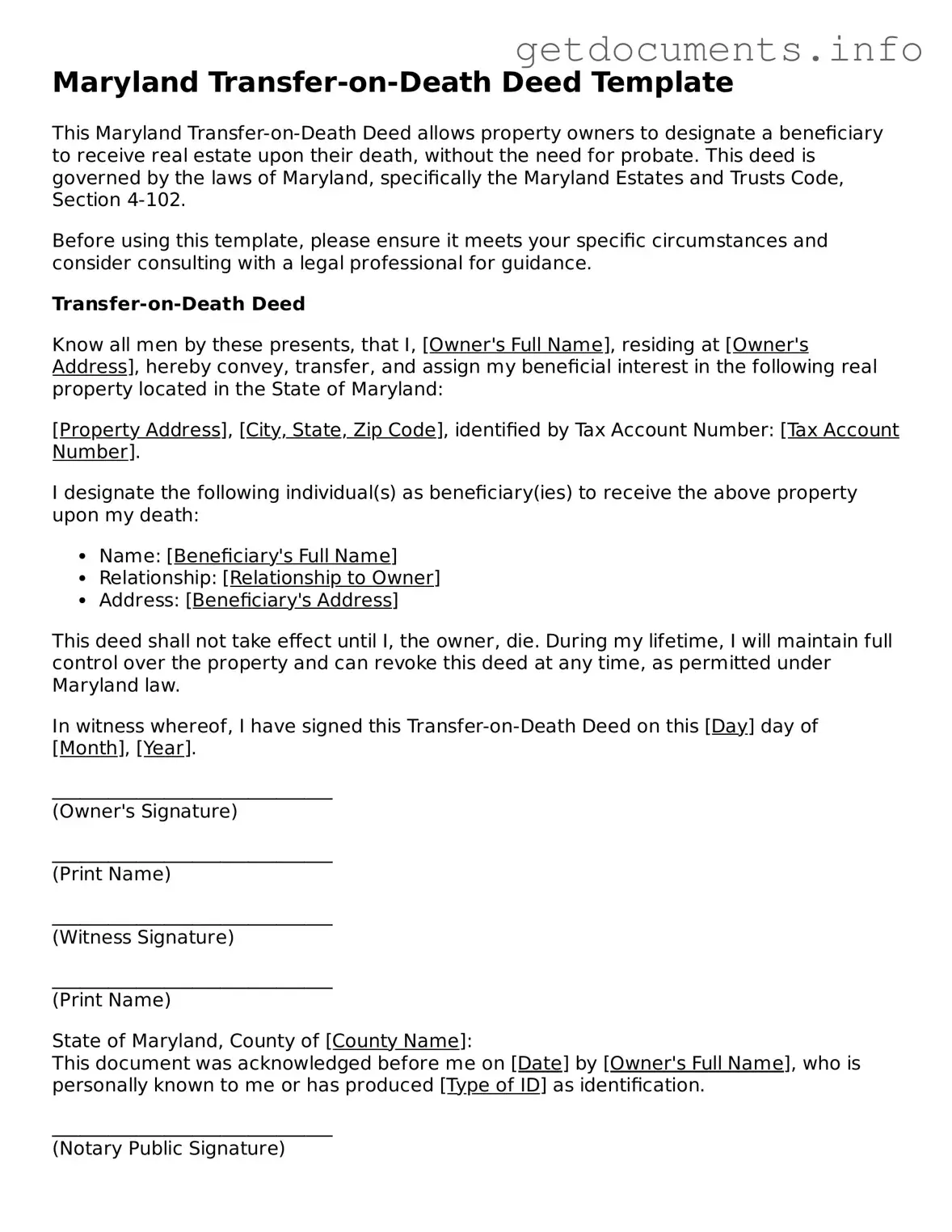Free Transfer-on-Death Deed Template for Maryland
The Maryland Transfer-on-Death Deed is a legal document that allows property owners to transfer their real estate to designated beneficiaries upon their death, bypassing the probate process. This form provides a straightforward way to ensure that your property is passed on according to your wishes, without the delays and costs associated with traditional inheritance methods. For those interested in securing their property transfer, consider filling out the form by clicking the button below.
Access Transfer-on-Death Deed Editor

Free Transfer-on-Death Deed Template for Maryland
Access Transfer-on-Death Deed Editor
Got places to be? Complete the form fast
Fill out Transfer-on-Death Deed online and avoid printing or scanning.
Access Transfer-on-Death Deed Editor
or
⇩ PDF File
